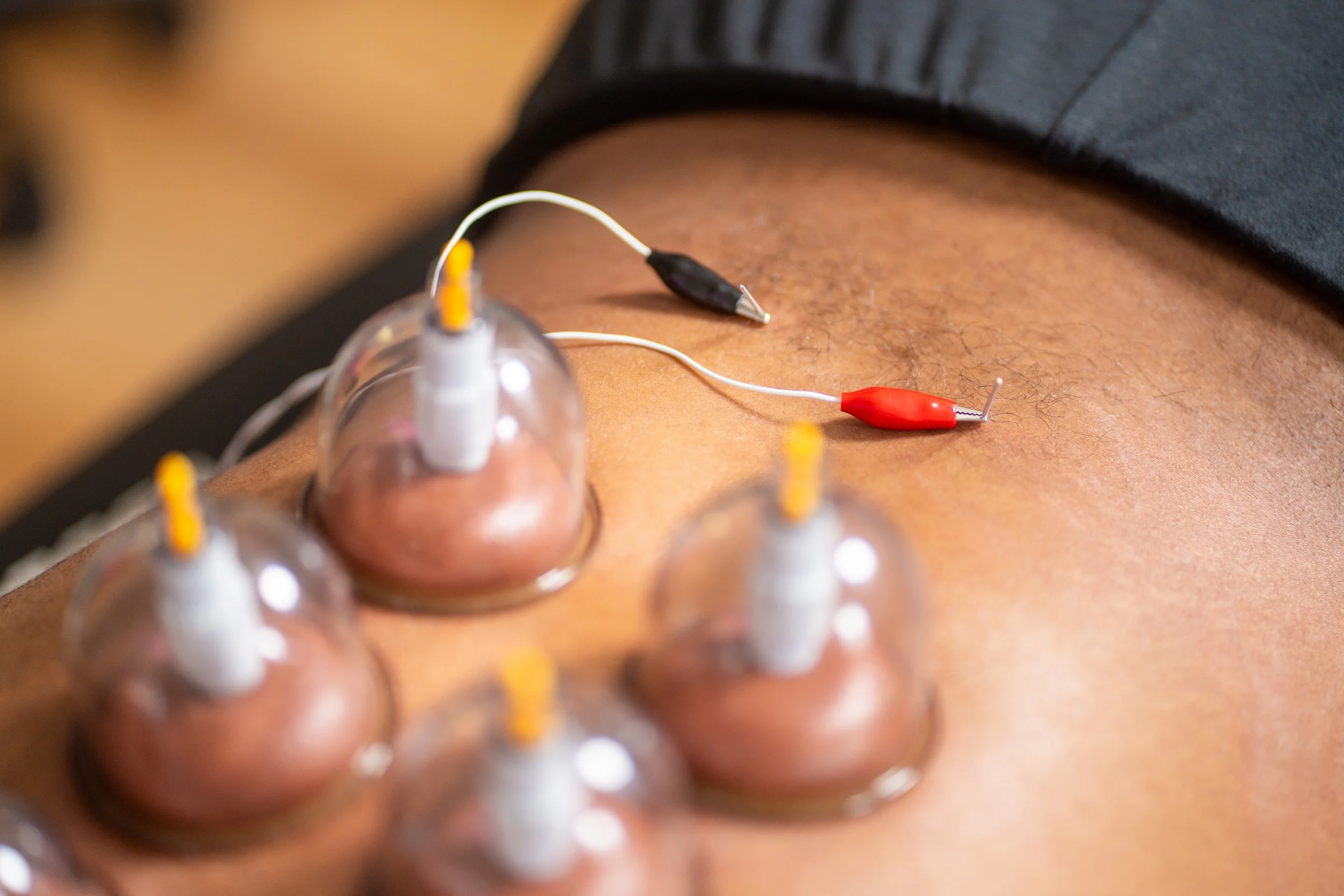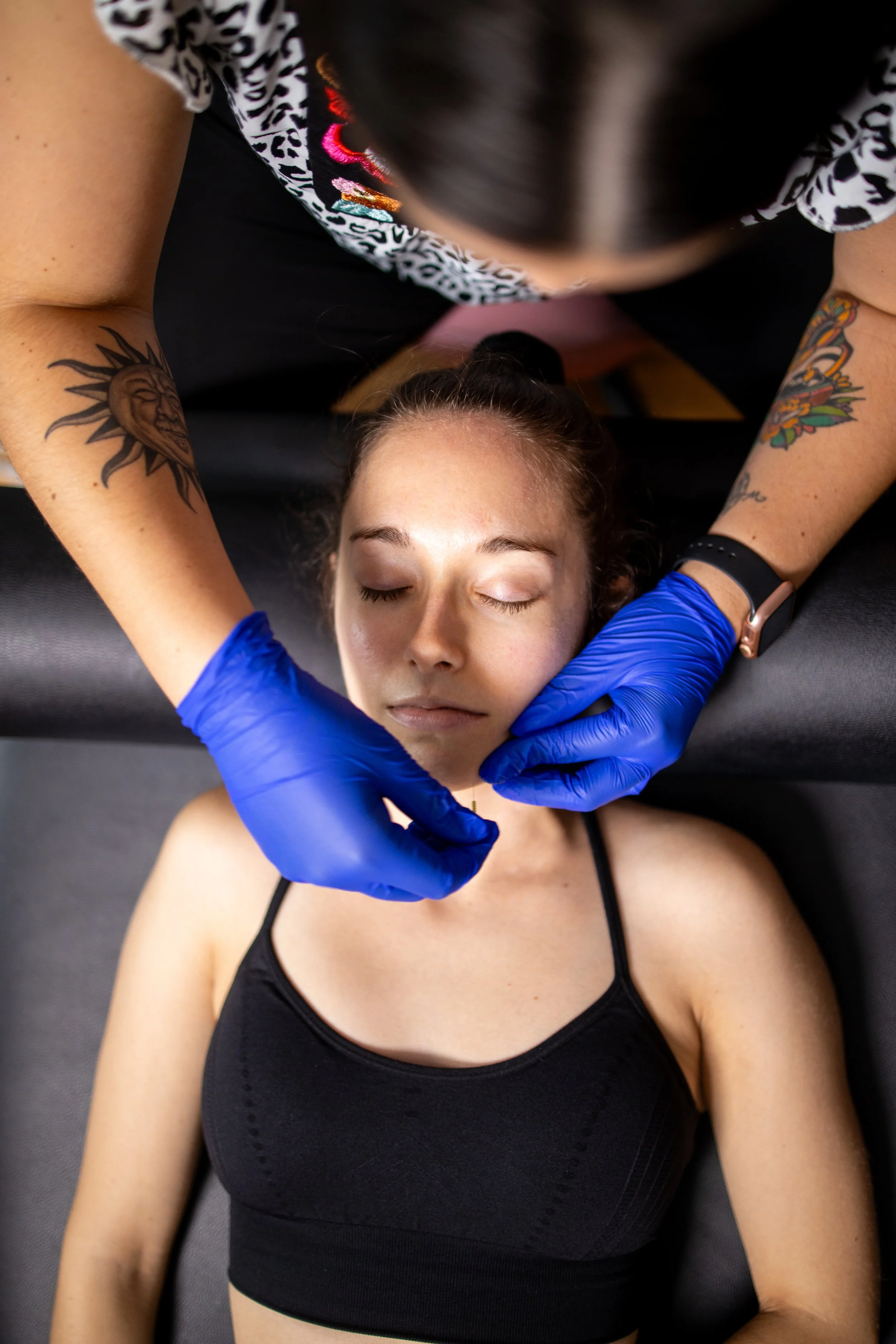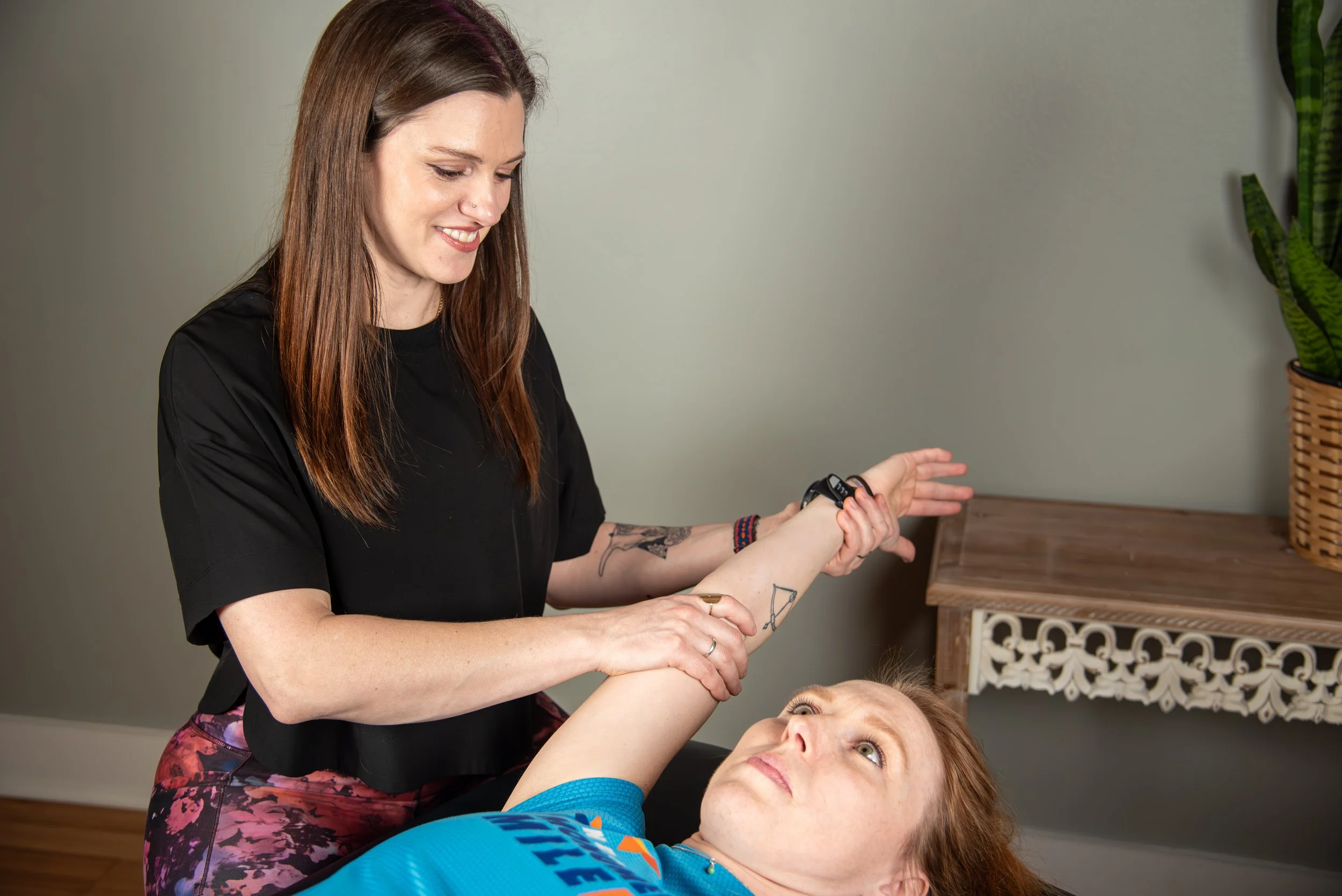Dry Needling
Dry needling is a great way to manage pain holistically, improve blood flow and circulation, calm the nervous system and promote healthy muscles and joints. Our expert Physical Therapists are highly trained in dry needling treatment and have many years of experience. At Wildflower, we emphasize a comprehensive approach to dry needling, addressing the root cause of pain, not just a single painful muscle.
Dry Needling FAQs
-

What is Dry Needling?
Dry needling is a physical therapy intervention that involves the insertion of a small monofilament needle into the body with the goal of restoring proper blood flow, reducing tension and helping tissues heal. There is nothing being injected into your body, hence “dry” needling. Dry needling treatments can offer patients immediate relief from many different musculoskeletal issues and can help break the chronic pain cycle.
-

What are the Benefits of Dry Needling?
There are MANY benefits of dry needling treatment. At the most basic level, dry needling involves an insertion of a monofilament needling through the skin and into the muscle tissue below in order to increase blood flow. This allows for chronic inflammation and harmful sensitizing chemicals to be taken back up into the body and tissues restored to homeostasis.
The dry needling benefits that patients report include reduced muscle tension, pain relief, improved joint range of motion, and faster healing time.
-

What Does Dry Needling Feel Like?
Due to the small nature of the needles, you likely won't feel the needle being tapped into the skin. Once the needle is moved, or manipulated, you may feel a brief cramping in the muscle and some soreness following treatment for 24-48 hours. If the needle elicits a local twitch response, the muscle will briefly contract around the needle, then relax again often translating to immediate tension relief.
-

Are There Different Dry Needling Techniques?
There are many different dry needling techniques, and our physical therapists are highly trained to choose the technique that works best for your specific diagnosis. We offer traditional trigger point dry needling, where we target specific painful muscles. We also incorporate dry needling that targets the root cause of painful trigger points so that we don't miss where the pain and discomfort is stemming from.
-

What are the Potential Side Effects of Dry Needling?
In highly skilled hands, there are minimal side effects from dry needling. Some common side effects include minor bruising, bleeding or muscle soreness. Our Physical Therapists are well-trained in safety and that is our #1 priority when delivering dry needling to you. Applying heat after can help reduce soreness.
-

How Many Sessions of Dry Needling Will I Need?
This depends on the severity of your symptoms as well as how long your issue has been going on. Most pain conditions resolve within 6-8 sessions, however significant relief can often be felt after the first session. Chronic pain conditions that have lasted years may require longer intervention.
What Conditions Benefit From Dry Needling?
-

Neck Pain
Dry needling works really well for neck pain, neck stiffness and tightness. Stubborn knots in your upper traps?! Carry tension and stress in your neck?! You would benefit from dry needling for neck pain.
-

Headaches
Do you struggle with headaches or migraines? Dry needling is an excellent treatment option for all types of headaches including: tension headaches, cluster headaches, migraines, and cervicogenic headaches. Dry needling also works well for ear pain, facial pain and jaw pain!
-

Sports Injuries/Performance
If you are an athlete and have not tried dry needling, you are missing out! Dry needling works really well for sports injuries as well as for injury prevention and to aid in recovery from your athletics and training.
-

Back Pain
Back pain can respond really well to dry needling as well! If you have tightness or stiffness in your back, dry needling can help to bring blood flow to the muscles and nerves in the region and down-regulate pain.
-

Carpal Tunnel Syndrome
The carpal tunnel is a space in your wrist that contains the median nerve and flexor tendons of the wrist and fingers. Compression of this nerve can cause numbness, tingling and weakness in the hand. It can also present as pain in the palm side of the wrist near the wrist crease. Dry needling can help reduce tension and improve blood flow.
-

Shoulder Pain
There are many musculoskeletal conditions of the shoulder that can be managed with dry needling treatment. This includes rotator cuff tears or strains, adhesive capsulitis, bursitis, and generalized tightness or pain.
Is Dry Needling the Same as Acupuncture?
The short answer is NO. Acupuncture and dry needling treatments are similar in execution, however they have completely different methodologies behind the treatment. Both acupuncture and dry needling treatments stem from principles of traditional Chinese medicine.
Dry needling has adapted over the years and is now based on modern medical principles. Dry needling can increase blood flow, stimulate nerves, reduce pain and inflammation, and eliminate painful trigger points. Dry needling is performed by Doctors of Physical Therapy with extensive training.
On the other hand, acupuncture is still largely based on traditional Chinese medicine and Eastern medicine principles. Acupuncture treatment is based on Meridian theory which says that meridians and acupoints establish energy flow throughout the body. Read more about the similarities and differences between dry needling and acupuncture here.
Don’t wait, schedule an appointment with one of our expert Physical Therapists today!
What people are saying
“She introduced me to dry needling, and the results were almost instant! My pain level was reduced from an 8 to a 3 by the end of the session. The dry needling, along with an at home exercise plan to build strength in my core, has done the trick.”
— Wildflower client
“She suggested dry needling - I was a bit hesitant - it felt “weird” - but it has helped alleviate the headaches tremendously.”
— Wildflower client


